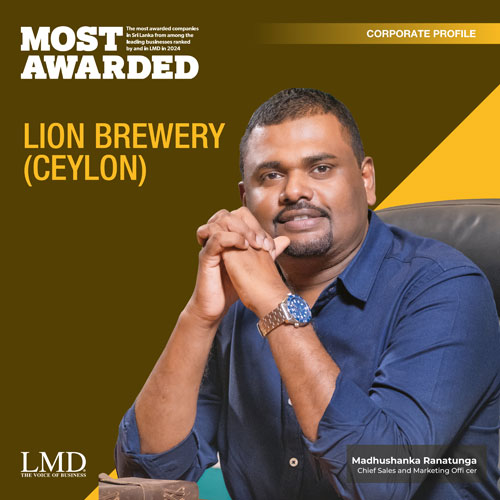SALUTING ACHIEVERS
Inspiring Excellence
Priyan Fernando
 Q: Are there any unique qualities that you see in businesses in Sri Lanka, which make them stand out on the world stage?
Q: Are there any unique qualities that you see in businesses in Sri Lanka, which make them stand out on the world stage?
A: Technology has levelled the playing field in today’s world. Innovative tools from across the globe are accessible in real time; they eliminate the traditional barriers to scale and affordability.
Cloud based data access and productivity tools such as robotic process automation (RPA) have greatly enhanced efficiency. The advent of large language models (LLMs) such as ChatGPT have enabled knowledge generation on an unprecedented scale.
So businesses that collaborate effectively to leverage and prompt these tools are poised to unlock new value.
This is where we are well positioned. Despite the economic difficulties faced by the country, Sri Lankan executives have cultivated a resilient and entrepreneurial mindset – one that’s focussed on innovation and value creation.
Our cultural strength in building relationships, fostering trust and teamwork sets us apart from more competitive individualistic business environments. By promoting collaboration and knowledge sharing, we can drive innovation, and develop new products and services for sustained growth.
Q: What do you believe is the most important facet of an award – recognition, validation or motivation for continued excellence?
A: While an award must include all these elements, the emphasis may vary depending on the circumstances and specific message that management aims to convey. At the core, recognition should be a motivator for the pursuit of excellence.
It must highlight individuals based on the ‘difference they made’ in strengthening the culture and contributing to the bottom line. Recognition must reinforce the objective of fostering a strong culture of meritocracy and appreciation.
People don’t leave companies; they leave bosses. A prime reason for this is the lack of appreciation or recognition. Therefore, it’s imperative for leaders to actively sponsor those who make a meaningful impact.
Q: And what roles do awards play in recognising and motivating businesses and working people?
A: Awards play a pivotal role in recognising those who have made a demonstrable difference in advancing key business priorities. They also serve as an acknowledgment of outstanding performance.
Receiving such recognition will boost their confidence, enhance their reputation and inspire their ambition to be role models in the organisation. A well designed awards programme should attract and retain top talent, reinforce desired behaviour, and promote healthy competition and innovation during times of change.
Q: How do awards contribute to elevating standards and practices within organisations or institutions?
A: Awards should set clear standards of excellence for individual actions that make a difference and add value. Over time, these standards will evolve into benchmarks for best practices.
To be impactful, awards need to be specific, visible and meaningful. Traditional formulaic year end performance evaluations are tied to a company’s overall performance and could overshadow individual contributions.
This is particularly critical during financially challenging periods such as the COVID-19 crisis when financial rewards were limited.
The awards should champion a culture where reward and recognition aren’t dictated by corporate hierarchy. They must be accessible to employees who make a meaningful contribution to an organisation’s success.
Q: What measures should be taken to maintain transparency and impartiality in the evaluation and selection criteria?
A: When awards lack transparency, they risk inviting criticism such as favouritism, disconnected management, lack of inclusivity and unconscious bias.
Most often, there’s a disconnect between management’s perception of top performers and how coworkers view their contribution. To address this, it is critical that the criteria for awards are clarified at the beginning of the year. These criteria should be directly linked to measurable impacts on key performance indicators that are aligned with the organisation’s goals.
Additionally, fostering open communication and feedback about the award process is essential to maintaining credibility, fairness and effectiveness.




